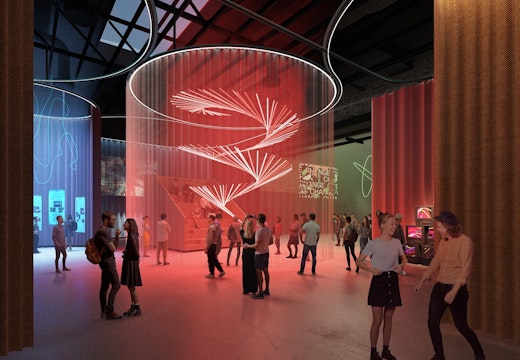Building connections: inside Booking.com’s data-driven campus
This episode of the Unworking podcast explores how Booking.com’s innovative office design fosters community, collaboration and connectivity
In recent years, workplaces have undergone significant transformations as they adapt to hybrid ways of working, technological advancements and evolving employee expectations and needs. There is a growing emphasis on creating inclusive, accessible environments that support wellbeing. Companies are increasingly using data-driven strategies, leveraging sensor data to design spaces that better meet the needs of its workforce.
In the latest episode of the Unworking podcast, Head of Business Innovation at Unwork Nicole Barretto sits down with Marnix Mali, Director of Global Real Estate and Workspace Services at Booking.com. On the agenda was Booking.com’s new central Amsterdam campus, representing a consolidation of its previous portfolio of 12 offices and its commitment to continuously improving the physical workspace.
Having been with the travel booking company since 2012, and with a keen interest in how the physical workspace can best enable the performance, Marnix is well positioned to consider how continuous data, experiments and feedback can contribute to the overall workplace experience.
A focus on workspace design
The new Booking.com campus has been described as a community, designed to reflect a small town that fosters connection, inclusion and sustainability. The outside architecture pays homage to the industrial history of the Amsterdam harbour, with glazed detailing reflecting both the water and the sky. Stepping inside the campus, however, reveals a bustling and carefully curated interior, designed with the vibrancy of Amsterdam’s central neighbourhoods in mind.
Booking.com experienced rapid growth in Amsterdam, totalling 12 offices spread throughout the city. With cross-office communication and collaboration hindered by the spread-out nature of this set-up, so the project to consolidate began. Marnix explains how ideas for the campus first started over eight years ago, with extensive considerations over the design of the new workspace.
The building focuses on inclusiveness – particularly for neurodiverse individuals. It has always been important for Booking.com to have an accessible workspace, and the company has become more proactive in seeking input from their own employees.
Collaborative leadership
Prior to the opening of the campus, Booking.com Amsterdam employees were taken on tours of the building, and encouraged to be open with feedback about what worked, what was missing, and what could be improved. Marnix remarks how the insights from employees proved invaluable, and whilst the workplace team cannot do everything for everyone at the same time, they can certainly listen and learn and accommodate most, if not all, of the topics that employees would like to have looked in to.
To this end, the company has built their ‘spirit team’, with representatives from different departments, to continue to engage employees with the design process. As an ever-evolving topic, they have become proactive in their approach, working to the motto that ‘you don’t know what you don’t ask.’
The social aspect of Booking.com’s impact in the central Amsterdam area has been well established through its commitment to investment in social initiatives. The 65,000 square foot campus has partnered with not-for-profits including Refugee Company and Techgrounds to make use of the 1,500 square metres of open restaurant and leisure space on the building’s ground floor. Marnix has considered how workspaces that actively engage with the surrounding community and create social impact can benefit not only the business and its employees, but the local and regional economy, too.
A data-driven approach
The team at Booking.com uses data, experiments and employee feedback to continuously improve employee design. The new campus is equipped with sensors to gather usage data, which the workspace team at Booking.com combines with intel from employee conversations to drive future decisions. Marnix emphasises that it takes time to understand and make use of data, but that understanding the individual needs of employees is crucial.
The Amsterdam campus, as the largest building in downtown Amsterdam and one of the largest offices in Western Europe, is a shining example of how Booking.com is committed to championing employee needs by creating a space that is flexible, inclusive and aware of its social impact. With a focus on employee wellbeing, the company is dedicated to adapting the workspace to foster collaboration and innovation, as well as individual and team success.
WORKTECH Academy members can access our full case study of Booking.com’s Amsterdam headquarters here, as well as listen to Marnix Mali’s contributions to our Q3 Trend Report here.








